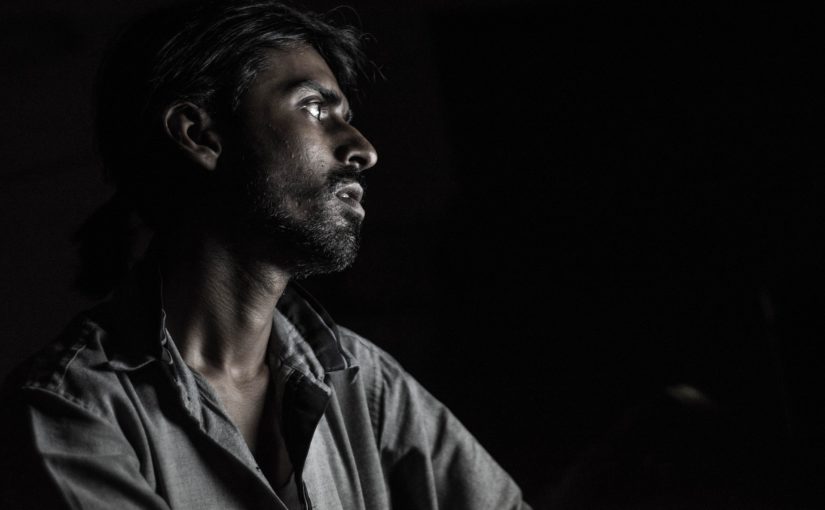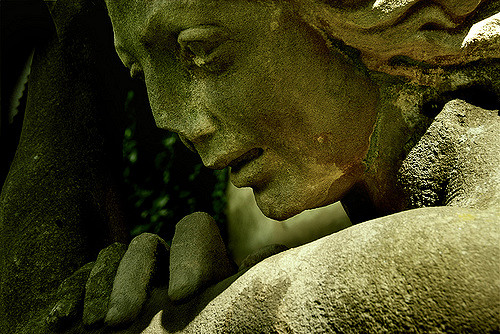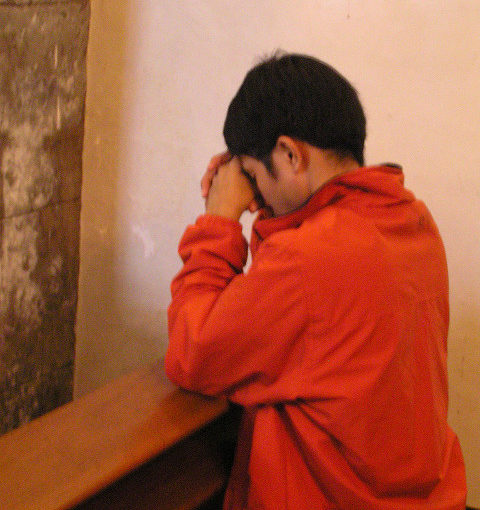Thursday, March 23 – Psalm 131
A Song of Ascents. Of David.
1 O Lord, my heart is not lifted up,
my eyes are not raised too high;
I do not occupy myself with things
too great and too marvelous for me.
2 But I have calmed and quieted my soul,
like a weaned child with its mother;
my soul is like the weaned child that is with me.
3 O Israel, hope in the Lord
from this time on and forevermore.
Points of Interest:
- Today’s psalm is a song for pilgrimage, sung while walking up the hilly road on annual journeys to the temple in Jerusalem. It doesn’t have the usual road trip, zippy vibe, through. It’s more like a lullaby, perhaps something travelers would sing before settling down to sleep at the end of a long day of travel.
- The first two verses address God by personal name. When you see Lord, in small caps in English translations of the Old Testament, you’re usually seeing a formal translation of the Hebrew Yahweh, the Hebrew name for the God of Israel that dates back to Moses’ vision of the burning bush. It’s related to the Hebrew verb “to be,” and means something like “I am who I am,” or “I will be what I will be.” In a word, you might say Indescribable or Indefinable. Out of fear of disrespecting the name of God, Jews over time used this name less and less, but would sort of talk around God’s name. The English translation, Lord, is another way of doing this.
- Speaking on intimate terms to Yahweh, the pilgrim lowers rather than raises her gaze. There are heart-racing realities in life, wondrous sites, big and complicated problems. Our pilgrim deliberately diverts her attention from things she doesn’t understand or might cause her anxiety. Instead, she takes a deep breath and turns her attention to what she knows about God – that God is good.
- This calm and quiet leads to contentment. The image here is how a child can sit in its mother’s arms after weaning. Before weaning, the child near its mother’s breast thinks, “I want, I want. Get me more milk.” After weaning, the child can simply be – content and satisfied.
- The psalmist takes a moment at the end of the poem to address her fellow pilgrims and whole people of Israel. Interestingly, she calls the place of contentment to which she has arrived hope. Perhaps this is an invitation – Be satisfied. Or perhaps it is a promise – turn to God, and you will be satisfied.
- This invitation and promise is available now and bankable in perpetuity. Calm, quiet, satisfied, hope, forever.
Prayer for your city and country – Some commentators have argued that some measure of our national and international turmoil and contentious discourse is fueled by the anxiety that rapid change produces. What could the meditative practice of contentment in individuals do for whole communities and nations? Pray for an increase in hope and satisfaction in God in as big a patch of this world as your imagination can contain today.
Spiritual Exercise – This week, after each Psalm, we’re practicing a simplified version of the Jesuit examen: examining our own life and thoughts and feelings, and connecting with God over what we find there. Today, examine three to five ways you are content. Practice the deliberate simplicity of turning your attention away from other things and only focusing on those sources of contentment for a few moments. Thank God for satisfying you. When you’re done, ask God if God has anything else to reveal to you, and pause for a moment of silence while you listen.











